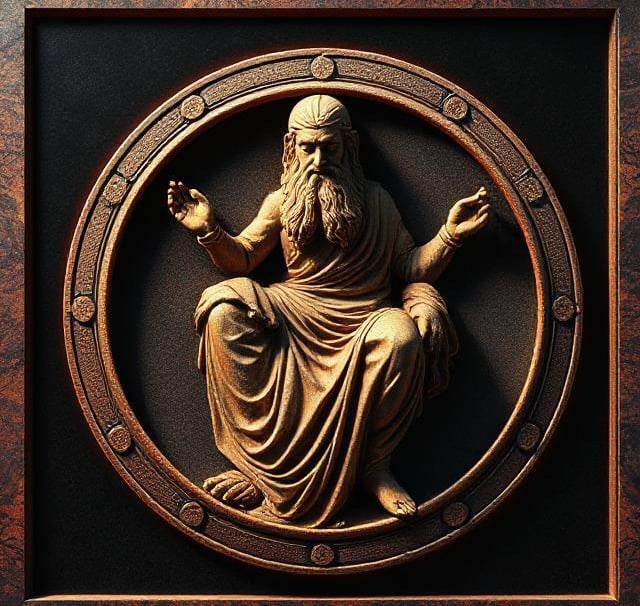UPSC Optionals PSIR: Comment: “The State is Individual Writ Large.” (Plato) (2005)
What if justice wasn’t just a law or a policy, but a state of the soul? Plato believed that a truly just society could only arise from truly just individuals. His idea of justice—as balance within the soul and harmony in the state—has influenced Western political thought for centuries. This post explores Plato’s concept of justice, its translation into a tripartite society, and the critical perspectives it invites from modern thinkers. A must-read for aspirants of UPSC Mains GS2 and PSIR Optionals!
PSIR
7/26/20252 min read


📘 Plato’s Idea of Justice: A Harmony Within
Plato saw justice not as external enforcement, but as internal harmony. For him, justice means “minding one’s own business and not meddling in other men’s concerns.” This applied both to the individual soul and the State.
He believed that God’s perfect justice should be mirrored within the individual soul, where the three components exist in balance:
Reason – The rational, truth-seeking part
Spirit/Courage – The assertive and passionate part
Appetite – The desiring and materialistic part
A just individual, for Plato, is one where reason rules over spirit and appetite, much like a well-governed city.
🏛️ From Soul to State: The Political Blueprint
Plato's State is the individual writ large—a magnified reflection of the soul. Using the tripartite soul, Plato constructs a tripartite society:
🟡 Men of Gold → Rational → Philosopher-Kings (Rulers)
⚪ Men of Silver → Spirited → Auxiliaries (Warriors/Soldiers)
🟠 Men of Bronze/Copper → Appetitive → Producers (Farmers, Artisans)
This structure is reinforced through the Myth of the Metals, a noble lie told to ensure people accept their social roles as natural and just.
Philosophers, guided by wisdom and detached from material desires, are best suited to rule. Plato supports communism of property and family among rulers, to prevent corruption and ensure selfless governance.
Education, for Plato, is a moral project, aimed at cultivating justice within individuals to build a just State.
⚖️ Justice as Architectonic Virtue
Justice, for Plato, is not just another virtue—it is “architectonic”: the virtue that ensures the proper functioning of all others. As Michael Foster notes, it’s like an architect harmonizing all elements of a building to make it stable and beautiful.
Just as reason must guide the soul, the Philosopher King must lead society, ensuring balance and peace.
📉 Critique: The Cost of Harmony?
Despite its elegance, Plato’s theory of justice draws sharp criticism:
🛑 Authoritarian Tendencies
Karl Popper: Plato is the enemy of open society, promoting a rigid, elite-led state where dissent is unwelcome.
Ernest Barker: He takes the organic analogy too far, treating the individual like a cell in the body of the State.
🛑 Suppression of Individualism
Focus on common good over personal freedom.
The producer class is denied full education or political participation.
Innovation, dissent, and freedom of thought are potentially sacrificed for harmony.
🛑 Democracy as Degenerate
Plato distrusted democracy, equating it with mob rule. He believed a state led by desires (appetite) would mirror an undisciplined soul—chaotic and unjust.
🔄 Modern Reflections and Relevance
Despite criticism, Plato’s analogy between individual virtue and political order remains deeply relevant. Even Gandhi’s concept of Swaraj reflects this: inner self-rule leads to true political freedom.
In today’s world, governments often try to align state policies with the values they hope to cultivate in citizens—echoing Plato’s ideal of a morally guided state.
🧩 Conclusion: Plato’s Just State – Ideal or Illusion?
Plato's concept of justice brilliantly fuses ethics and politics, soul and society. While his idealism offers a powerful vision of order and moral leadership, it also raises concerns about freedom, equality, and participation.
Yet, his lasting influence proves that even centuries later, we still wrestle with the same question: What does it mean to live in a just society—and how do we build it from within?
✍️ Why this matters for UPSC:
Crucial for GS2 philosophical underpinnings of governance
Directly relevant to PSIR Paper I – Political Thought
Helps answer questions on justice, ideal state, elitism, and democracy